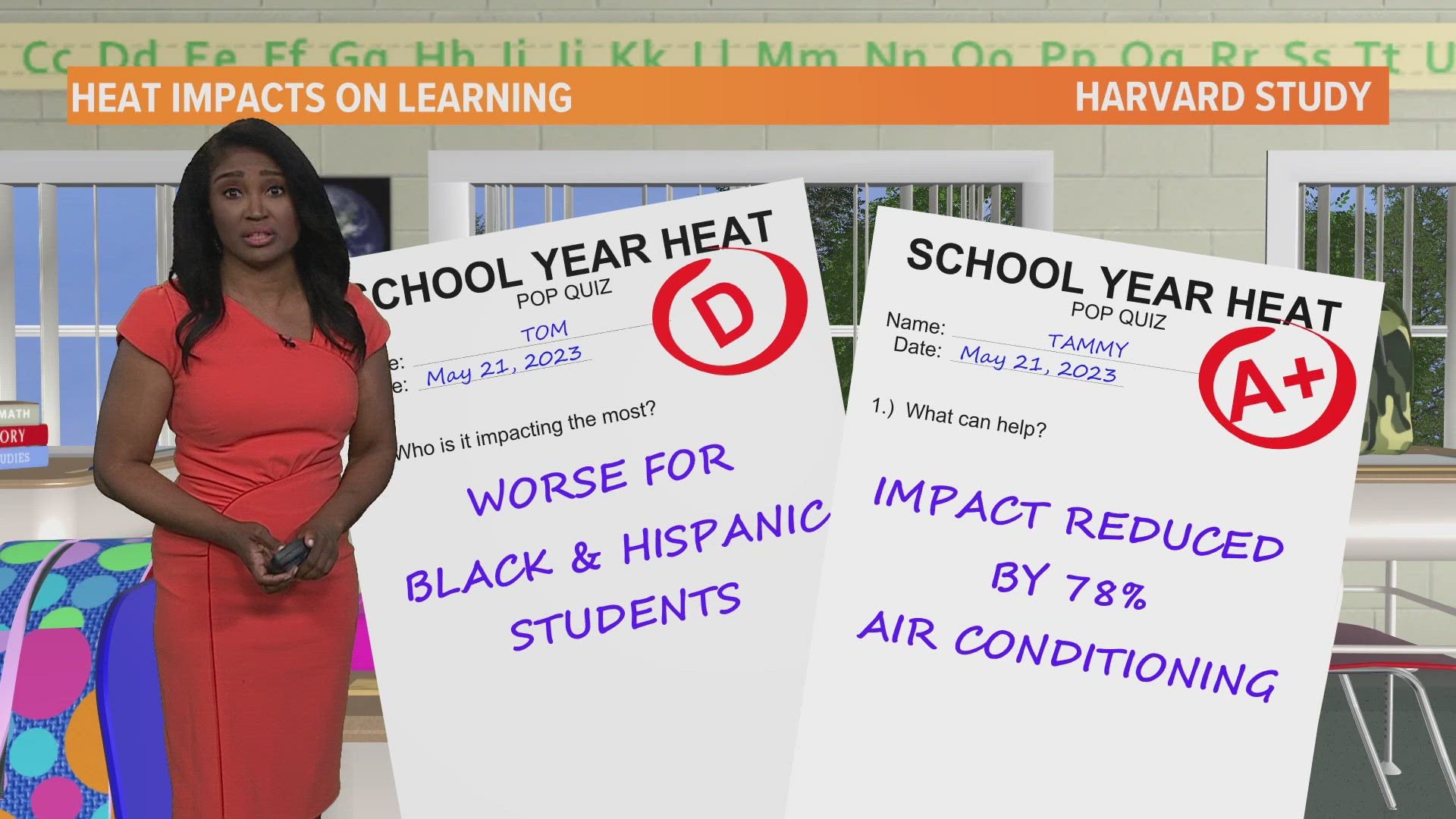WASHINGTON — Record heat has gripped the D.C. Metro area with highs soaring to the upper 90s. In the first week of September, highs have been more than 13 degrees hotter than what temperatures would be. Extreme heat can bring on many challenges including in classrooms where children don't have access to air conditioning.
The Environmental Protection Agency released a report showing how climate change may impact students who are exposed to heat in the classroom.
The report found that heat affects a child's concentration and learning. EPA officials found that climate-driven temperatures may lead to a 4 to 7 percent reduction in annual academic achievement per child.
Officials are concerned that learning losses could lead to future financial losses, potentially thousands per child.
WUSA 9 has reported on children learning in hot classrooms at D.C. area schools, such as at Wheatley Education Campus. A math teacher at Wheatley Education Campus, Alexa Cacibauda, told WUSA9 that with no air conditioning, temperatures inside her classroom reached the 80s.
"A third-grade teacher reported that her students were crying," Cacibauda said. "Students are very cranky. They're miserable."
Harvard University also did a study on children learning in hot schools.
The study followed the data of 10 million American students from the high school classes of 2001 to 2014. The students took the PSAT exam multiple times.
The study found students scored lower after they experienced a hot school year, compared to when they had a cool school year. Researchers noted that low-income and African American and Latino students were impacted more.
"The impact of heat on black and Hispanic students is three times as large as the impact on white students," study authors noted.
“We show that only school-day exposure to higher temperatures affects test scores; hot summers and weekends have little impact on achievement and controlling for such exposure does not shrink the magnitude of the impact of hot school days,” the authors wrote. “This suggests that heat’s disruption of instruction or homework time is responsible for the observed drop in test scores.”
The impacts were reduced drastically by adding air conditioning. Researchers noted a 78 percent reduction in negative impacts once cooler air was introduced.
In the DMV, the heat is coming in earlier and sticking around longer. Pop-up 80-degree days came sooner this year than they should have. In April of 2023 alone, there were eight 80-degree days in D.C. On two of those days, the temperatures nearly reached 90 degrees, with highs of 88 degrees.
For reference, the temperature reached 88 degrees in D.C. on April 21st, 2023. The temperature on that date was 18 degrees above the average high, which is 70 degrees.
Similarly on September 4, 2023. D.C. hit a record high of 98 degrees. The average temperature for that date is 85 degrees.

